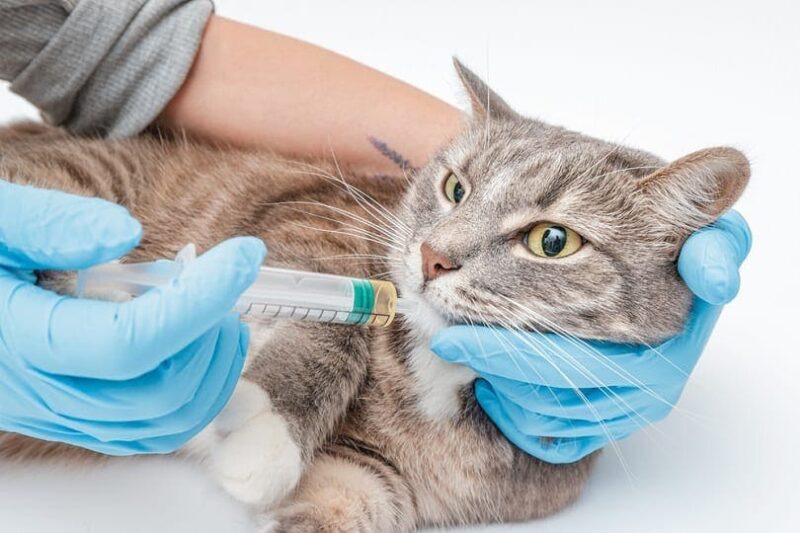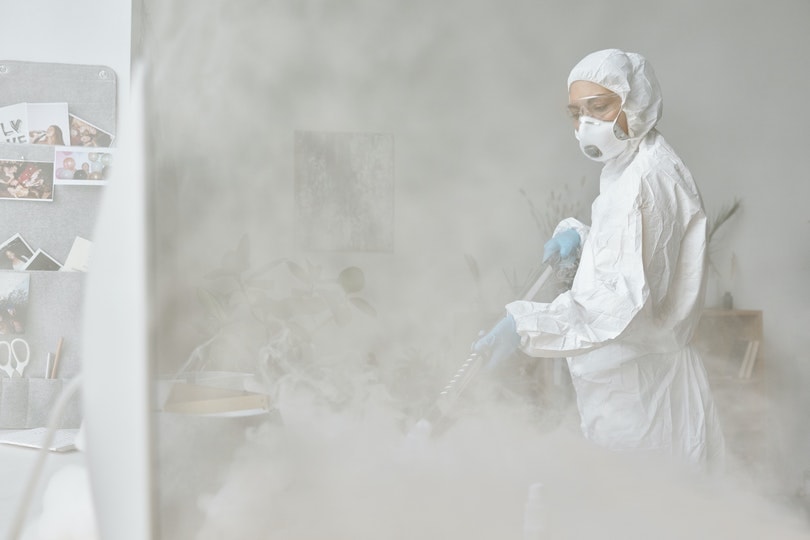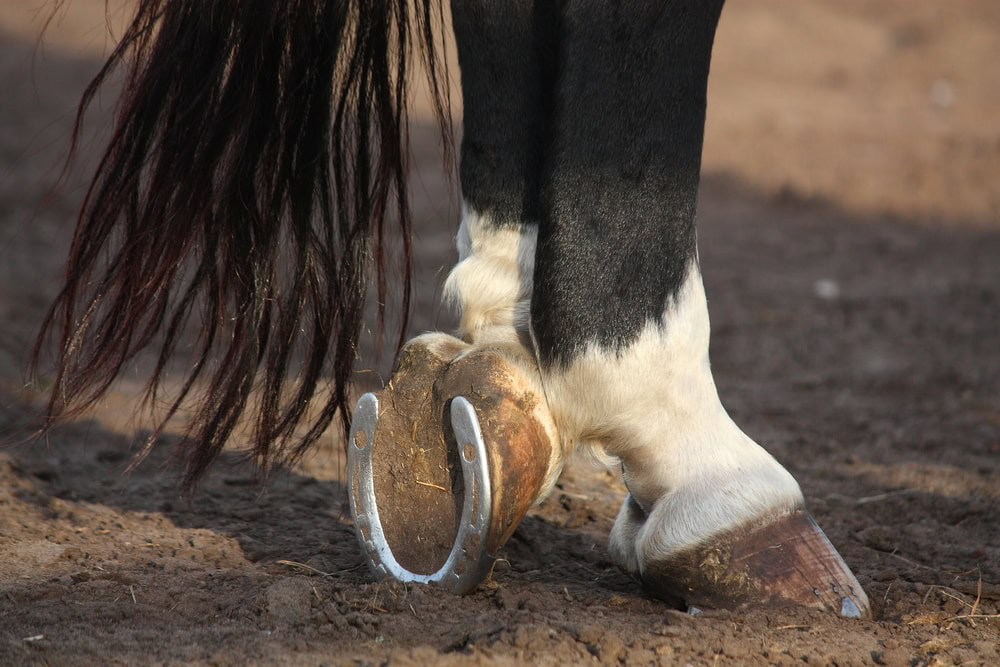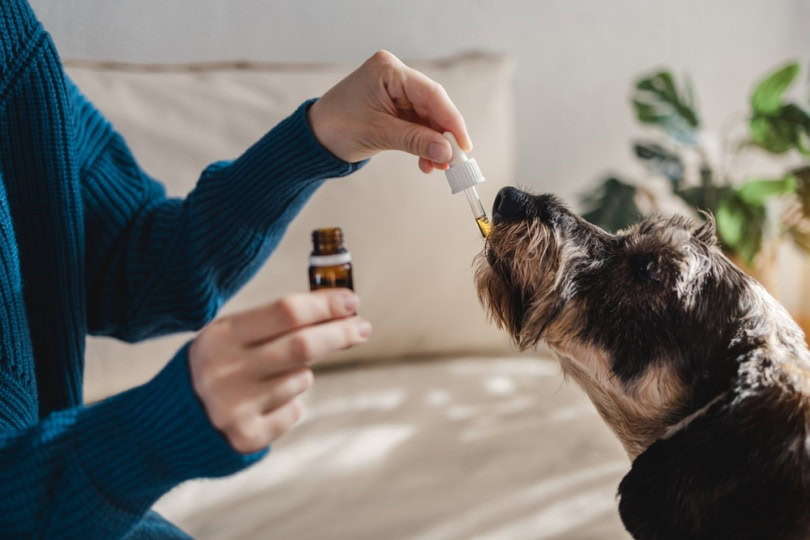VET APPROVED

The information is current and up-to-date in accordance with the latest veterinarian research.
Learn more »Click to Skip Ahead
It can be really difficult to deal with a sick kitten or elderly cat struggling to get enough nutrition. Tube feeding, jaw problems, neurological issues, and a variety of other issues may cause your cat to require a liquid diet. These are essentially used for cats that are refusing or unable to eat. Liquid diets can be difficult to come by, though, and may be costly.
It’s important to understand the nutritional needs of your cat before considering a liquid diet. Offering broth, cat milk, goat’s milk, and other liquids isn’t going to provide your cat with adequate nutrition. Your vet is the professional who can prescribe a liquid diet and explain how, when, and for how long it should be administered.

Why Would a Cat Need a Liquid Diet?
It is not common for a cat to need a liquid diet. Most of the time, cats are fed solid food in different formats. However, on some occasions, your vet may prescribe a liquid diet. Liquid diets can provide nutrition to cats who are struggling to eat or are refusing to eat at all. Cats with cancer, kidney or liver problems, dental and mouth issues, and recovering from major surgeries or comatose cats can benefit from a liquid diet.
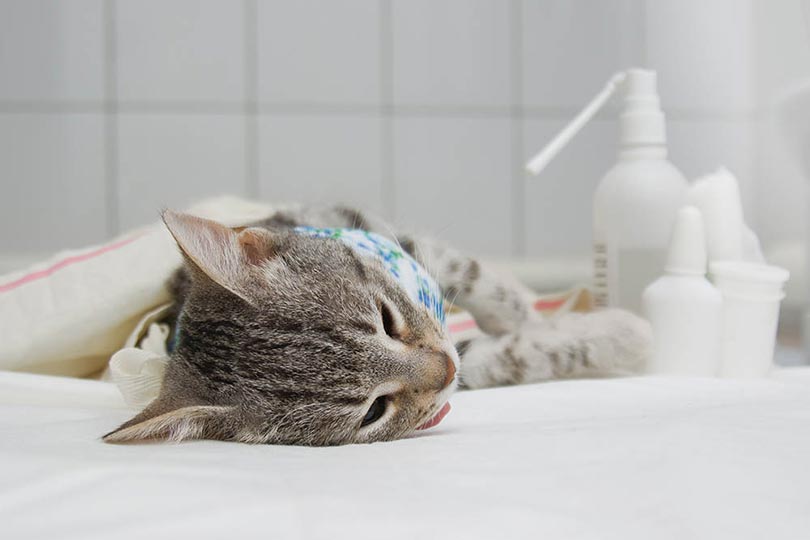
What Are the Benefits of Liquid Diets?
Liquid diets are typically more easily digested than regular food and are formulated to be highly nutritious. This means that your cat, who might be suffering from an illness or recovering from surgery, will be able to get the nutrition they need with a small amount of food.
It is important to remember that you should administer the diet according to the advice of a veterinarian to ensure that your cat receives the nutrition they need. This diet should be fed in the right amount, not too little or too much.
How Are Liquid Diets Fed?
How your cat will need to be fed with a liquid diet will be dependent on what is causing your cat to need a liquid diet. Comatose cats will need to have a feeding tube in place, and the food is administered through the feeding tube at set intervals. Under no circumstances should you care for a comatose cat at home.
There are other reasons a cat may have a feeding tube. Feeding tubes are commonly used to provide nutrition to cats who have a poor appetite related to medical conditions, like cancer and chronic kidney disease. They may also be used for cats that are unable to eat normally or not eating at all. An example could be cats with jaw injuries or severe mouth pain.
In some cases and for a short period of time, you may be providing your cat with a liquid diet at home. If your cat has any difficulty eating on their own, then you may be responsible for syringe feeding your cat. Your vet will teach you how to safely do this at home to prevent aspiration and choking. You may also feed a liquid diet to a cat or kitten via a temporary feeding tube that is placed through their nose.
If your cat can eat on their own but is struggling to eat food with texture, then a liquid diet is a temporary way to make it easier for your cat to feed and get nutrition in a more comfortable way. Cats struggling to eat may have great difficulty getting enough nutrition, and a liquid diet can make it easier for them to receive adequate nutrition that they can consume on their own. Remember that liquid diets are not a substitute for normal cat food, and they should only be used under your vet’s guidance and for a brief period of time.
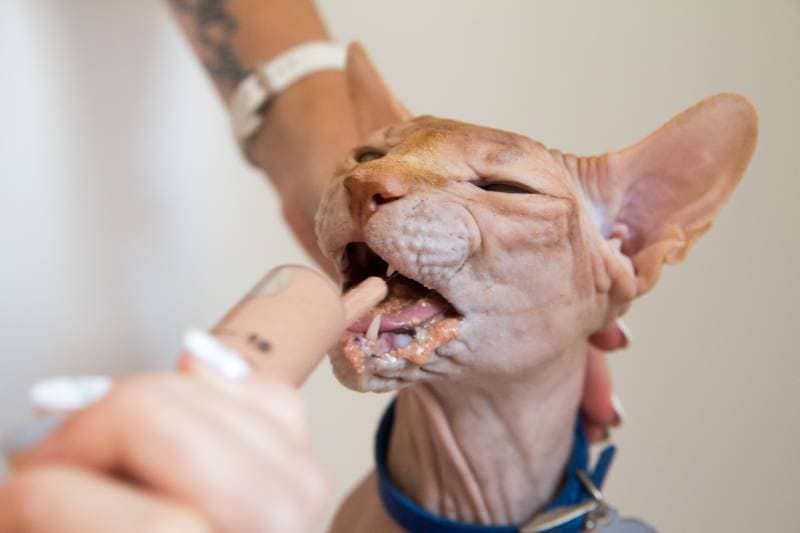
Downsides of Liquid Diets
While liquid diets are a great option for certain circumstances, they are not intended for long-term use. This means that they should not serve as a permanent solution for your cat. Some liquid diets can be used long-term in conjunction with nutritionally complete diets, but you should work with a veterinary nutritionist to establish a feeding plan for your cat if they are having long-term medical issues.

Conclusion
Liquid diets can be a lifesaver for cats needing tube feeding or experiencing episodes of severe debility during illness. Liquid diets should be used under the guidance of your veterinarian and are not formulated for long-term or permanent use. If you think your cat could benefit from being supplemented with a liquid diet for a long period, then a veterinary nutritionist will be your best bet for ensuring your cat receives all the necessary nutrients to keep them healthy for a long time and to support healing.
Featured Image Credit: frantic00, Shutterstock
